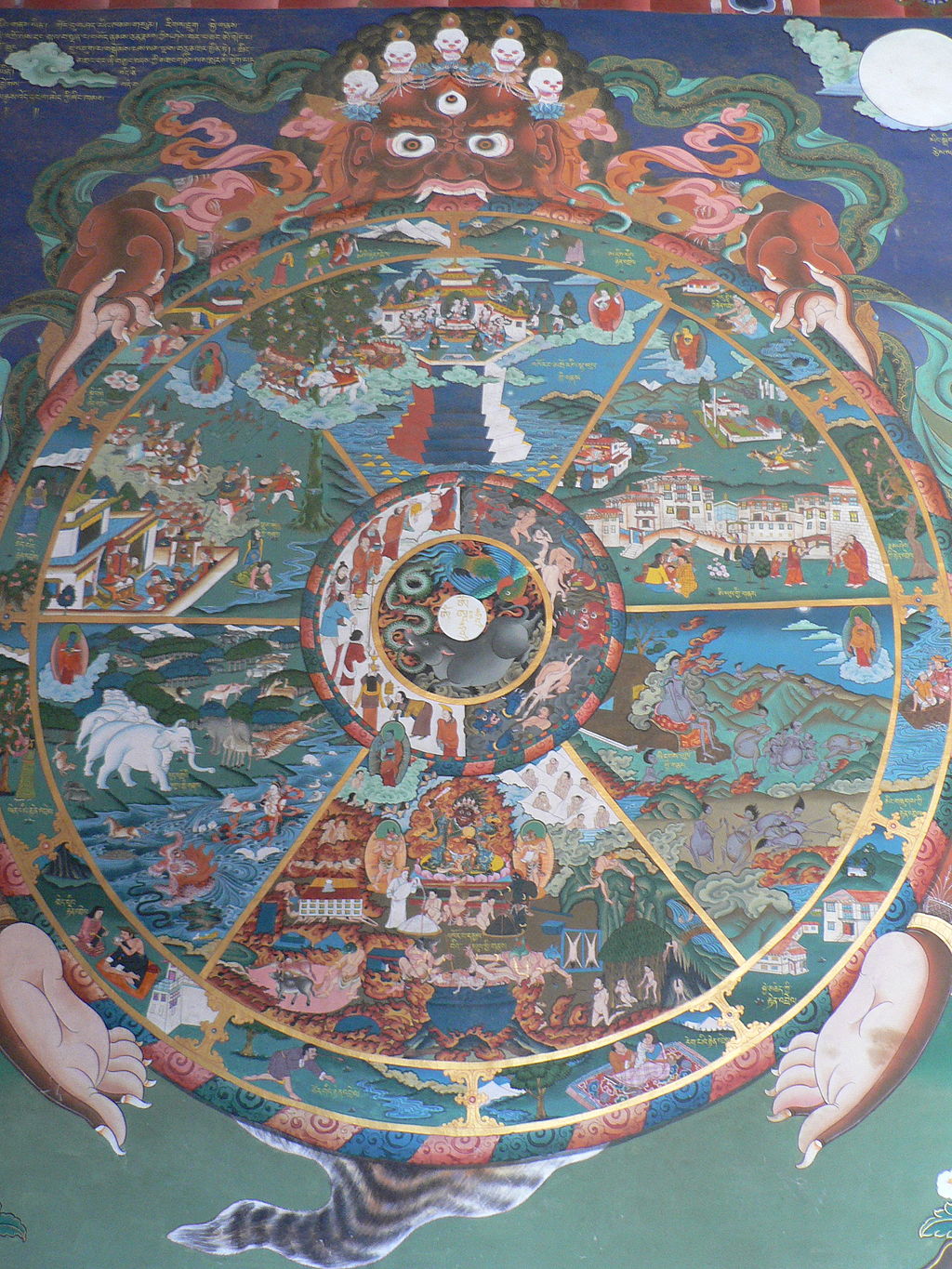That Which You Seek
Article By Dipti Sanzgiri
 At some points in our lives, many of us face some nagging questions. What manifests is a sense of restlessness, a lack of real happiness and peace – despite the absence of any apparent reason for feeling so. Questions like, Am I doing what I should be doing? Do my actions have any meaning or purpose at all? What is my purpose?
At some points in our lives, many of us face some nagging questions. What manifests is a sense of restlessness, a lack of real happiness and peace – despite the absence of any apparent reason for feeling so. Questions like, Am I doing what I should be doing? Do my actions have any meaning or purpose at all? What is my purpose?
How would you respond if at such moments, you got a direction like: “That which you seek is seeking you.” (1) Or if you hear with a transcendent clarity: “My soul is from elsewhere, I’m sure of that, and I intend to end up there.” (1) Would you not be inspired to pursue an investigation: What could be seeking me? Where has my soul come from? What direction takes me back to where I came from?
Such simple but deeply profound responses to reflective questions of life can come only from an elevated consciousness, free of the constraints of mundane motivations, an uncluttered mind. Such was the case of Jalal ud Din Muhammad Balkhi – the one from Balkh, or Roman Anatolia – or Rumi as was made popular by the western world. A Sufi poet for most, a Master for Mevalana tradition disciples, an Islamic scholar for readers of Masnavi – his 6 volume treatise which is regarded as the Persian language Quran by all Sufis – an exemplary disciple for all disciples, absorbed by love and devotion to his master.
For all those in whom the search for the real, the Truth, is awakening, an encounter with Rumi is like encountering an ocean. Not only in terms of the sheer volume of his written work which by any standard is huge, but more importantly, the depth at which he touches the mysteries of life is deeply penetrating. Once you put your feet in those waters, you are bound to drown in the depth of his love for you. In his writing, we can feel his deep suffering at seeing us live in ignorance, blinded by illusions. Everything he offers to us is with that immense compassion, driven by causing us to see and experience that which he already has, so that we might move from darkness to light!
There is a fountain inside you. Don’t walk around with an empty bucket.
You have a direct channel into the ocean, yet you ask for water from a little pool.
Beg for the love expansion. Meditate only on THAT…
Knock on the inner door, no other.
Sloshing knee-deep in fresh river water, yet you keep asking for other people’s water bags.
Water is everywhere around you, but you see only barriers that keep you from water. (3)
Rumi tries to show us our abundant true self and our pitiable condition of not being aware of it all! As humanity we have been relentlessly seeking happiness from things outside ourselves either by acquiring material wealth or fame or from love and approval from others. Rumi reminds us that what we are seeking is actually already inside us! And that we have a direct channel to the ocean itself! How futile then, that we still keep searching for water outside! But which fountain and which ocean is he talking about?
Human life has a special and unique gift – access to the mental spark, light, given to us by that one divine intelligence. This intelligence, if invoked, allows us to see the connectedness of everything in life, the unity that manifests through the diversity of forms! It is said that the Buddha had explained that by understanding an orange completely and deeply, one can understand the entire Universe. Hence, in order to see and experience Beauty, Love, Kindness and Justice, which is the first place I should investigate? Myself. The moment we look within, we begin to glimpse the fountain that exists inside us! And Rumi also tells us how to do that.
“Your task is not to seek for love, but merely to seek and find all the barriers within yourself that you have built against it.” (1)
As we begin our journey on this path, we will encounter the many layers of likes, dislikes, hurt, pain, beliefs, anger, ego, and ambition…veils that cover our true being, obstacles that prevent us from being who we truly are. But we will also find through this inner search, that we have the capacity to peel off these layers slowly but surely.
This journey is not easy. It requires hard work of invoking the Will, paying active attention to the motor behind our every action, and the painful letting go of old habits and automatic reactions that block our evolution and serve only the preservation of an old illusory identity. Initially, the fountain inside me is invisible but since the bucket I hold is real for me, I become dependent on it.
“If you are irritated by every rub, how will your mirror be polished?” (1)
And if you want this mirror to be polished, you have to be prepared for a thousand rubs by sand paper! For graphite to become a diamond, it has to go through the intense pressure and heat, deep in the Earth’s crust, for many millions of years, without which it cannot transform!
What would be this pressure and heat for us? Every time we face the gap between what we understand and believe to be the right thing to do, and what we actually do. Initially, we may not even be aware of this gap! But the moment we choose to pay attention, we come face to face with this ethical issue. And then conflict within arise and then the Will to choose the right has to be evoked to fight the comforting tendency of choosing the wrong. For example, let’s say we agree that focus and concentration is the key to pierce through the haziness of mind to consider any subject with clarity. However, the mind has the natural tendency to scatter, always on the move like a butterfly – from one thought to another. Hence I conclude that I need to tame my mind, and gain the ability to direct it. However, I rarely take out time, or put in the effort, to develop this ability and my mind continues exactly as it was! The conscious choice to move out of my comfort zone becomes necessary in order to encounter what for me is unknown, uncomfortable, but right. And this movement, this effort, and the need to overcome the fear and inertia, is exactly the rubbing of the mirror that Rumi speaks of. Without this rubbing, I will not make any progress; I will not encounter my potential.
And who better than Rumi to show us that when we finally understand this path that leads from darkness to light, even wealth and fame cease to hold one back. Rumi’s life story is just as inspiring as his writings. He was born to a scholar father who had introduced young Rumi to several sources of knowledge and many respected Maulavis and Sufis of the time. On the early demise of his father, he had become the head of the Madarasa in Konya. And at the age of 34, he already had hundreds of disciples. So by all accounts his was more than an accomplished life; famous, respected and even revered by many. However, in just one encounter with Shams, a wandering dervish, all of this ceased to matter!
Shams and Rumi shared an intense relationship as friends, but also as Master and disciple. Rumi’s first encounter with Shams is described in various versions. However, the essence of all the versions is that Shams pierced through the scholarly knowledge of Rumi and dazzled him with an experiential knowledge of the divine. Rumi’s son, Shamsad Walad, wrote later: “After meeting Shams, my father danced all day and sang all night. He had been a scholar—he became a poet. He had been an ascetic—he became drunk with love.” (2) This encounter caused Rumi to leave behind his illustrious scholarly life, and plunge deep into the mysteries, driven by the love for his master, the one who revealed to him his soul, his true identity.
When we consciously seek, we might encounter or get a glimpse of truth. But then we are faced with the choice of leaving behind what we had known till then, or instead, to follow the newly found truth. But how many of us are able to contemplate this choice! We are so deeply attached to our personal identities, defined by illusory and transient characteristics. We define ourselves as accomplished artist, a lawyer, a doctor, a caring husband, wife, son, serious or fun loving, adventurous or cautious, etc. And we limit ourselves with such identifications so strongly that we are unable to see beyond. We come face to face with the challenge of harmonising these different aspects of our lives, by developing a centre, our true identity, beyond all the temporary masks and roles that we might play.
It is said that at the end of that first encounter with Shams, Rumi fell into a semi-conscious state, emerging again as a different man. In Urdu, such a mystical experience is called fanaa, the annihilation of the ego. All his worldly identities – his knowledge, his disciples, his family, his fame – just fell to dust. And his consciousness was absorbed in the grace and love of divinity that had come to him in the form of Shams. And such love is difficult to describe and explain. It can only be experienced and seize the opportunity to do so when life brings you a teacher.
The rule that covers everything is:
How you are with others, expect that back.
If you want to know God, enjoy the company of lovers.
If you want to be thought a great person,
Learn some subtle point and say it with many variations as the answer to every question.
If you want to live your soul, find a friend like Shams and stay near. (3)
This force of love transforms also others around us. Because when you truly love someone you are no longer the same person. Something changes in your inner being. Suddenly, you put someone else’s wellbeing before your own! We, who are usually obsessed with, I, me and mine, when truly experience love for someone else, forget about ourselves – a sort of fanaa. And here we speak about love not as an emotional excitement, which is transient, but as a force of life, a force of attraction, a force of unity.
An ant hurries along a threshing floor with its wheat grain,
Moving between huge stacks of wheat, not knowing the abundance all around.
It thinks it’s one grain is all there is to love. (3)
We make that one grain, that small world of ours, the object of our love. We are completely blind to the vastness of life, all of creation that is expressing its love for me. We take everything in life for granted. The sun, the rivers, the trees, the treasures of mother earth, everything. And then the wonder for that phenomena just doesn’t exist! But if we were to recognise the giving nature of life, selflessly, without expecting anything in return, then we would be awestruck by it.
And if we continue on this path, we might discover that it is us who live in an illusion of separateness. If, and when, we are able to transcend this illusion, open ourselves to boundless possibilities, life responds many times more!
Did you hear that winter’s over?
The basil and the carnations cannot control their laughter.
The nightingale, back from his wandering, has been made singing master over all the birds.
The trees reach out their congratulations.
The soul goes dancing through the king’s doorway. (3)
The winter of separation from my inner, higher self has ended and a deep inner joy of the Spring has bloomed! The soul, the nightingale, has taken its true place as the master over all the other lower aspects of myself; my body, my emotions, my ego, my likes and dislikes, and guides me on my path. All the rubbing has given the result and the glimpse of my true self can finally be seen in the mirror!
And yes, it is a constant battle – of defeating my weaknesses by invoking my strengths, of recognising my true identity when I am taken by my ego – all the time, every time.
And Rumi again very lovingly and with lot of compassion exhorts us,
Come, Come, whoever you are,
Wanderer, worshipper, lover of leaving,
This isn’t a caravan of despair,
It doesn’t matter, if you have broken
Your vows a thousand times before,
Still and yet again,
Come again come. (3)
Image Credits: By Jared Erondu | unsplash | CC BY PD
The entity posting this article assumes the responsibility that images used in this article have the requisite permissionsImage References
By Jared Erondu | unsplash | CC BY PD
Permissions required for the publishing of this article have been obtained
Article References
Bibliography 1. Jalaluddin Mevlana Rumi Quotes.




What do you think?